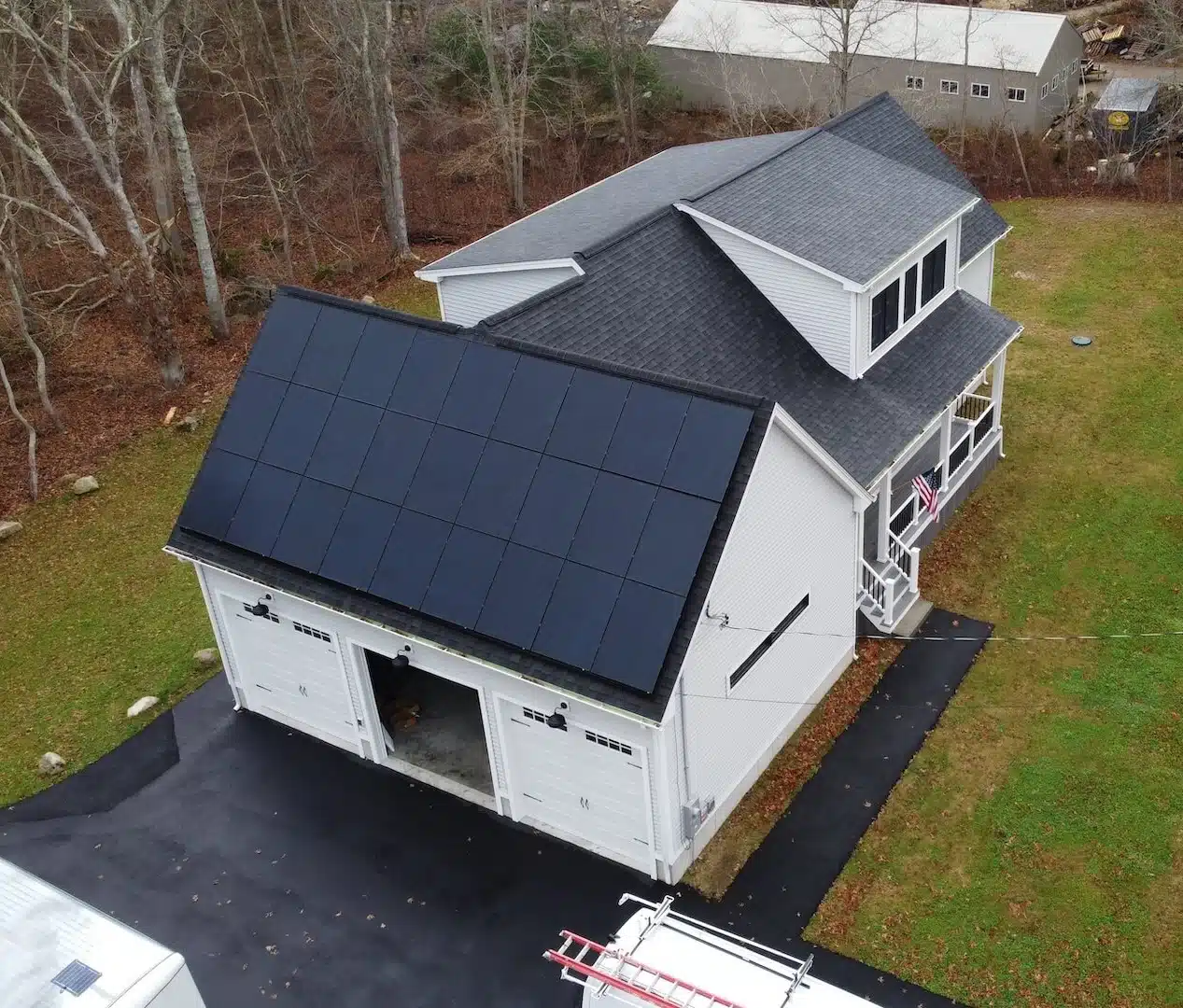Frequently Asked Questions
What is the average cost of solar panels in Massachusetts?
The average cost of solar panels in Massachusetts typically ranges from $15,000 to $25,000 for a residential installation, depending on system size and other factors. Incentives and financing options can significantly reduce this initial investment.
How much does a solar panel installation cost in MA?
The cost of solar panel installation in Massachusetts varies, typically ranging from $15,000 to $30,000 before incentives. Factors such as system size, equipment quality, and installation complexity influence the final price.
What is the average solar panel installation cost in Massachusetts?
The average solar panel installation cost in Massachusetts typically ranges from $15,000 to $25,000 before any incentives or rebates. This cost can vary based on system size, installation complexity, and specific site conditions.
What is the cost of installing solar panels in Massachusetts?
The cost of installing solar panels in Massachusetts typically ranges from $15,000 to $30,000, depending on system size and installation specifics, but various incentives can significantly reduce this expense.
What are the benefits of installing solar panels in Massachusetts?
The benefits of installing solar panels in Massachusetts include significant cost savings on energy bills, increased property value, and a positive environmental impact through reduced carbon emissions. Additionally, state incentives and rebates make solar installation more affordable for homeowners.
What is the cost of solar panels in Massachusetts?
The cost of solar panels in Massachusetts typically ranges from $15,000 to $25,000 for a residential installation, depending on system size and energy needs. However, state incentives and federal tax credits can significantly reduce these costs.
What factors influence solar panel costs in Massachusetts?
The factors influencing solar panel costs in Massachusetts include the size of the installation, the type of solar panels chosen, local labor rates, available incentives, and the complexity of the installation site.
How can I estimate my solar installation expenses?
Estimating your solar installation expenses involves evaluating factors such as your energy needs, the size of the system, equipment costs, installation fees, and potential incentives. Consulting with a solar provider can help you obtain a detailed estimate tailored to your home.
What financing options are available for solar panels?
The financing options available for solar panels include cash purchases, solar loans, and leasing agreements. Many customers also benefit from federal and state incentives that can significantly reduce upfront costs.
Are there tax credits for solar panel installations?
Tax credits for solar panel installations are available to homeowners. The federal solar tax credit allows you to deduct a significant percentage of your installation costs from your federal taxes, making solar energy more affordable.
What is the return on investment for solar panels?
The return on investment for solar panels is significant, as homeowners can save on energy costs and often see a payback period of 5 to 7 years, leading to substantial savings over the lifespan of the system.
How do solar panel costs compare across Massachusetts?
The comparison of solar panel costs across Massachusetts reveals that prices can vary significantly based on location, local incentives, and installation complexity. Generally, the South Shore, Cape Cod, and Islands may offer competitive rates influenced by state incentives.
What are the long-term savings from solar energy?
The long-term savings from solar energy include significantly reduced electricity bills, potential tax incentives, and increased property value, leading to substantial financial benefits over time for homeowners who invest in solar power systems.
How does solar panel size affect installation cost?
The size of solar panels directly influences installation costs. Larger panels typically require more robust mounting systems and may increase labor costs, while smaller panels may necessitate more units to achieve desired energy output, impacting overall expenses.
What maintenance costs are associated with solar panels?
The maintenance costs associated with solar panels are generally low. Routine cleaning and occasional inspections are typically all that's needed, with costs averaging around $100 to $300 annually, depending on the system size and local service rates.
What incentives exist for solar energy in Massachusetts?
Incentives for solar energy in Massachusetts include the Solar Massachusetts Renewable Target (SMART) program, which offers financial incentives for solar installations, as well as federal tax credits and state rebates that significantly reduce the overall cost of solar systems for homeowners.
How do local regulations impact solar panel installation?
Local regulations significantly impact solar panel installation by determining zoning laws, permitting processes, and building codes. Compliance with these regulations ensures safe and efficient installation while optimizing the benefits of solar energy for homeowners.
What is the average payback period for solar panels?
The average payback period for solar panels typically ranges from 5 to 10 years. This timeframe can vary based on factors such as installation costs, energy savings, and available incentives.
How can I reduce my solar installation costs?
Reducing your solar installation costs can be achieved by taking advantage of available incentives, comparing quotes from different installers, and considering financing options. Additionally, installing during off-peak seasons may lead to lower labor costs.
What are the best solar panel brands for Massachusetts?
The best solar panel brands for Massachusetts include SunPower, LG, and Canadian Solar. These brands are known for their high efficiency, durability, and excellent warranties, making them ideal choices for homeowners in the region.
How does roof orientation affect solar panel efficiency?
The roof orientation significantly impacts solar panel efficiency. Panels facing south typically receive the most sunlight, maximizing energy production, while east or west orientations may produce less energy, especially during peak hours.
What is the lifespan of solar panels in Massachusetts?
The lifespan of solar panels in Massachusetts typically ranges from 25 to 30 years, with many panels continuing to operate efficiently beyond this period, making them a long-term investment for homeowners.
How do weather conditions affect solar panel performance?
Weather conditions significantly affect solar panel performance. While sunny days maximize energy production, cloudy or rainy weather can reduce output. However, solar panels still generate electricity in less-than-ideal conditions, ensuring consistent energy supply year-round.
What are common misconceptions about solar panel costs?
Common misconceptions about solar panel costs include the belief that they are prohibitively expensive and that installation requires extensive home modifications. In reality, solar panels can significantly reduce energy bills and many financing options are available to make them more affordable.
How can I maximize savings with solar energy?
Maximizing savings with solar energy involves selecting the right system size, taking advantage of available tax credits and incentives, and utilizing net metering to offset energy costs. Additionally, regular maintenance ensures optimal performance and longevity of your solar panels.
What is the process for obtaining solar permits?
The process for obtaining solar permits involves submitting an application to your local municipality, including site plans and specifications. After review, the permits are issued, allowing for the installation of solar panels on your property.
How do I choose a solar installation company?
Choosing a solar installation company involves researching their experience, customer reviews, and certifications. Look for companies that offer comprehensive services, transparent pricing, and strong warranties to ensure a reliable and efficient installation process.
What are the environmental benefits of solar energy?
The environmental benefits of solar energy include reducing greenhouse gas emissions, minimizing air pollution, and conserving water resources. By harnessing the sun's power, solar energy promotes a cleaner, sustainable future for our planet.
How does net metering work in Massachusetts?
Net metering in Massachusetts allows residential solar power users to receive credits for excess electricity generated by their solar panels. These credits offset future energy costs, making solar energy more cost-effective and promoting sustainable energy use.
What are the steps to install solar panels?
The steps to install solar panels include assessing your property, designing the system, obtaining permits, installing the panels and inverter, and finally connecting to the grid. Each step ensures a smooth and efficient solar installation process.













